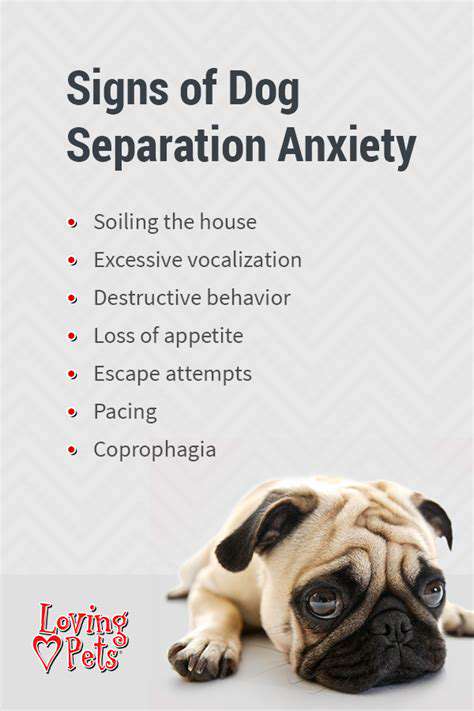Guide to Adopting a Pet When You Live in an Apartment
The secret? Matching your rhythm to your pet's natural tempo creates harmony that lasts for years. Imagine coming home to a pet whose energy level perfectly complements yours - that's the gold standard. Don't rush this decision; spend weekends visiting breeders, talking to veterinarians, and maybe even fostering potential matches. When you find the one, you'll know - everything just clicks into place.
Considering Temperament and Health Factors
Personality matters more than you might think. Some breeds bounce off walls with endless energy, while others would rather nap than chase a ball. That hyperactive Border Collie might overwhelm a quiet bookworm, while a laid-back Basset Hound could frustrate an avid runner.
Health shouldn't be an afterthought. Certain breeds carry genetic time bombs - hip dysplasia in German Shepherds, breathing issues in Pugs. Knowing these risks upfront helps you prepare emotionally and financially. Vet bills can skyrocket, so research typical health costs for your chosen breed.
Seasoned pet owners and breeders offer priceless insights you won't find in books. They'll tell you about the Beagle who howls at midnight or the Persian cat that demands hourly brushing. These real-world stories help paint the complete picture.
Be brutally honest with yourself. That adorable Husky puppy will grow into an escape artist needing hours of exercise. If your 60-hour workweek won't allow for that, it's better to know now than face heartbreak later.
Preparing Your Home for Your New Companion
Assessing Your Living Situation
Before bringing home that furry bundle of joy, take a hard look at your space. That Great Dane puppy won't stay small forever - will your apartment feel like a closet when he's full-grown? Check for hazards: loose wires, toxic plants, or precarious bookshelves that could become climbing gyms for curious cats.
Creating a Safe and Comfortable Space
Every pet needs a retreat - a crate for dogs, a high perch for cats, or a cozy hideaway for small animals. This isn't just about comfort; it's about reducing stress during the adjustment period. Include familiar-smelling items if possible, like a blanket from the breeder.
Understanding Pet Needs and Requirements
Dogs need walks, cats need vertical space, rabbits need room to hop. Ignoring these innate needs leads to behavioral issues and unhappy pets. Research until you dream about litter box placement and chew toy varieties.
Preparing Supplies and Essentials
Stock up before adoption day. You'll need quality food, sturdy bowls, an appropriately sized carrier, and enrichment toys. Don't forget the boring but crucial items: enzymatic cleaner for accidents, nail clippers, and a pet first-aid kit.
Establishing a Routine
Pets thrive on predictability. Set consistent mealtimes, walk schedules, and play sessions from day one. This structure helps anxious animals adjust and prevents many common behavior problems before they start.
Considering Potential Challenges and Solutions
Expect some turbulence during the adjustment period. House-training accidents, midnight meowing, or destructive chewing might test your patience. Having a game plan (and a support network) makes these challenges manageable rather than overwhelming.
CBT effectively challenges negative thoughts contributing to panic attacks.
Navigating the Adoption Process and Beyond
Understanding the Adoption Application Process
Adoption applications might feel invasive, but shelters need to ensure good matches. Expect questions about your work schedule, pet experience, and even your views on training methods. Thorough, thoughtful answers demonstrate your commitment and help staff guide you toward compatible animals.
Choosing the Right Pet for Your Lifestyle
That energetic puppy might tug at your heartstrings, but will it fit your busy schedule? Be realistic about the time and energy you can consistently provide. Sometimes the perfect pet isn't the one you imagined, but the one whose needs align with your reality.
Preparing Your Home for a New Pet
Beyond the basics, consider your pet's perspective. Secure loose cords, install baby gates if needed, and create clear boundaries. A well-prepared home prevents accidents and helps your new companion feel secure faster.
The Importance of Vet Visits and Initial Health Checks
Schedule that first vet appointment before bringing your pet home. Early detection of health issues saves money and heartache down the road. Plus, establishing care creates a medical history that's invaluable in emergencies.
Understanding Pet Food and Nutrition
Not all pet foods are created equal. Consult your vet about age-appropriate, breed-specific nutrition. The right diet prevents obesity, maintains healthy skin and coat, and can even extend your pet's lifespan.
Building a Strong Bond with Your New Pet
Trust develops through consistent, positive interactions. Learn your pet's unique communication style - that flick of the tail or ear position speaks volumes. Respect their boundaries while gently encouraging new experiences.
Addressing Potential Challenges and Seeking Support
Every pet owner hits rough patches. Whether it's separation anxiety or leash reactivity, professional trainers and behaviorists can provide tailored solutions. Don't wait until problems become ingrained - early intervention works best.
Essential Considerations for Apartment Pets

Choosing the Right Apartment
Apartment hunting with pets requires extra scrutiny. Check pet policies, noise restrictions, and nearby green spaces. That bark-prone dog might not fare well in thin-walled buildings, while cats need secure windows in high-rises.
Budgeting and Financial Planning
Pet ownership adds unexpected costs. Factor in pet deposits, potential damage repairs, and higher cleaning fees when calculating affordability. Some breeds may require professional grooming that adds up over time.
Legal and Contractual Obligations
Read leases carefully - some restrict breeds, sizes, or quantities of pets. Get all pet-related agreements in writing to avoid disputes later. Know your rights regarding service animals versus emotional support pets.


![Review: [Specific Brand] Smart Pet Door](/static/images/33/2025-05/EaseofInstallationandSetup.jpg)


![Review: [Specific Brand] Dog Toy [Specific Type]](/static/images/33/2025-05/ValueforMoneyandAlternatives.jpg)



![My Pet's Favorite Toys and How They Play [Story]](/static/images/33/2025-05/BeyondtheToy3ATheRoleofPlayinaDog27sLife.jpg)
![Best Pet Carriers for Airline Travel [Review]](/static/images/33/2025-05/TopCarrierChoices3AAComparativeLook.jpg)
